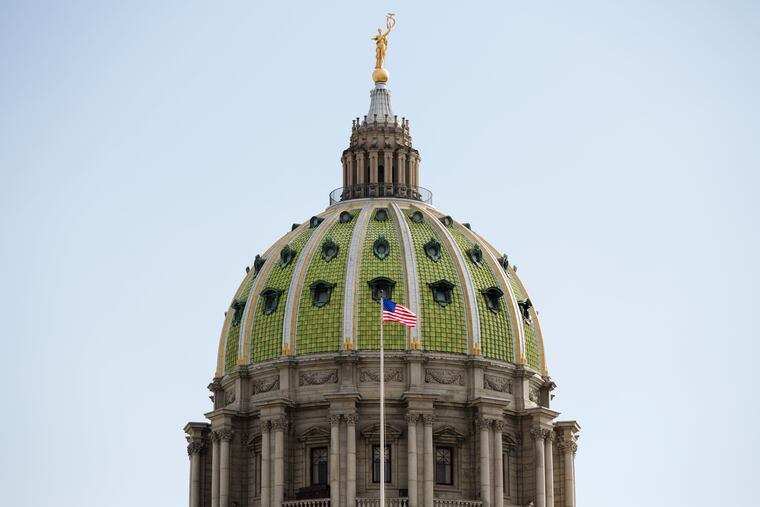Pa. state legislators set up struggling families for a bigger tax bill next year | Opinion
Instead of backfilling the budget with federal CARES Act funds, Wolf and lawmakers should have considered business owners and families and students struggling with education costs and online learning.

With all the pandemic-related economic disruptions of 2020, many Americans are relying on the federal government — particularly stimulus checks and Small Business Administration loans — to offer financial relief. Unfortunately, state governments have adopted the same approach, relying on federal borrowing — and massively increased deficit spending — to fund their expenditures.
This year’s widespread business closures and unemployment have resulted in state tax revenue shortages, despite the CARES Act funding they received. While CARES Act funds were intended to deal with direct COVID-related costs, many states are simply looking for a “free” way to fund their own excessive spending. Some states are even lobbying for more federal taxpayer aid.
» READ MORE: Without advocates in City Hall, Philly’s small businesses are unfairly expected to white-knuckle it | Opinion
Earlier this year, in Pennsylvania, lawmakers worked with Gov. Tom Wolf to pass a stopgap budget that made post-COVID state spending adjustments. Then, two weeks after the election, they completed the 2020 budget during the lame-duck session. But with a $3 billion shortage to makeup, lawmakers, unfortunately, made only a halfhearted effort toward financial solvency, opting instead to rely on questionable federal aid, overlook the state’s real needs, and pave the way for crushing tax hikes.
Pennsylvanians may appreciate some components of the final budget deal. For instance, lawmakers tapped into excess reserves like the “shadow budget” to cover certain COVID-related gaps, and even made a few spending reductions for expenses that were smaller this year. But these minor attempts at fiscal responsibility fell short of covering the state’s arrears; billions still remain in these offline accounts. Meanwhile, the one-time sources of revenue that made up for the state’s budget shortfalls won’t be around next year — and taxpayers will be asked to make up the difference.
Instead of cautiously reducing spending as policy experts recommended, lawmakers chose to cover overspending with more than $2.1 billion in federal funds for Medicaid and $1.33 billion in one-time federal CARES Act money. This COVID-designated money, though, was intended for besieged restaurants and other business owners who suffered far more than government bureaucracies. Who needs federal stimulus dollars more: the many state services that barely operated this year, or the restaurants that Philadelphia Mayor Jim Kenney just placed on restrictions again?
» READ MORE: Say goodbye to your favorite restaurants. There's no relief coming. | Opinion
Instead of backfilling the budget with federal CARES Act funds, Wolf and lawmakers should have considered business owners, but also families and students struggling with education costs and virtual learning. After all, the pandemic has affected Pennsylvania’s countless communities in unimaginable ways. But lawmakers treated these dollars like a briefcase full of cash that nobody would miss — while passing a 7.5% increase in spending over last year. In 2021, taxpayers should prepare for the likelihood of proposed tax hikes.
Clearly, Pennsylvania’s elected officials have misused federal funds — and the U.S. Treasury Department agrees. Indeed, its guidance for CARES Act spending limits possible uses to COVID-related expenses; they have already rejected one of Wolf’s earlier plans to use the money as a replacement for slot machine revenue. The act also prohibits use for Medicaid payments or employee salaries unrelated to COVID work. If the federal government rejects the budget, the state will find itself confronting a significant predicament.
Sadly, Wolf and the legislature didn’t consider these eventualities when they completed the budget. Instead, during this bleak holiday season, they set up struggling families for a bigger tax bill next year.
Nathan Benefield is vice president and chief operating officer of the Commonwealth Foundation. A version of this piece originally appeared in RealClearPolitics.